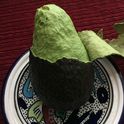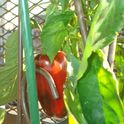[ food analysis ] -- anyone highly knowledgeable and experienced in food that can recommend best sites for science-based food questions?
for example,
whole durum wheat = not safe to eat raw
there's toxins in it, which you likely know or have experienced, or have researched
so that's safety reason for why you have to cook it
---
for both whole durum wheat pasta
and for semolina pasta
* what is the minimum cook time (about) that makes each of these pasta technically cooked, and thereby safe?
question applies more to whole durum wheat
dunno if semolina is safe to eat raw or not
all else equal, same pot, same amount, same stove, etc. etc. etc.
---
[ food analysis ] -- anyone highly knowledgeable and experienced in food that can recommend best sites for science-based food questions?
8 Comments
The issue that provoked the warning is the danger that flour, which comes from a filed crop, may become contaminated by E.coli just as other field crops are.
For nutrient analysis and food safety, it is hard to get reliable up to date verdicts because information changes often, depending on both new studies and the way studies are publicized.
On any one question, I would look for multiple reports (at least 3) from a medical school, university, laboratory or recognized research authority.
If sponsored by a food manufacturer or a category association, be very skeptical of the information and conclusions.
Marion Nestle, professor of nutrition at both NYU and Cornell, is a good resource, both in books and online.
http://www.foodpolitics.com/tag/whole-grains/
Will be interested to see what authorities other food52 members recommend...



